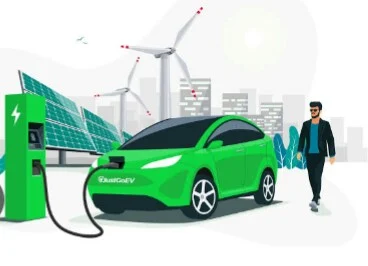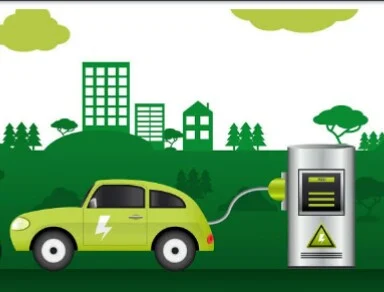Electric Vehicle
Electric Vehicle in Germany
Germany, known for its love affair with automobiles and engineering prowess, is embracing a new era of transportation with the widespread adoption of electric vehicles (EVs). With a strong commitment to sustainability and a thriving automotive industry, Germany is at the forefront of the global electric mobility revolution.
In this article, we delve into Germany's journey towards electric vehicles, explore the driving factors behind its success, and discuss the environmental and technological advancements that electric mobility brings to the country.
Electric Vehicles in Germany
| Year | Key Event or Milestone | Impact |
|---|---|---|
| 2010 | Introduction of the Electric Vehicle Subsidy | Provided financial incentives for the purchase of electric vehicles, boosting sales. |
| 2013 | Launch of the "Electric Vehicle Roadmap" | Set ambitious targets for electric vehicle adoption and outlined strategies for achieving them. |
| 2015 | Expansion of the charging infrastructure | Increased the availability of charging stations nationwide, making electric vehicle ownership more convenient. |
| 2017 | Introduction of the "Electric Vehicle Tax" | Implemented a lower tax rate for electric vehicles, further incentivizing their purchase. |
| 2019 | Announcement of plans to ban the sale of new gasoline and diesel cars by 2030 | Reinforced Germany's commitment to transitioning to electric vehicles. |
| 2020 | Launch of the "Electric Vehicle Charging Infrastructure Development Plan" | Focused on expanding the charging network, especially in rural areas. |
| 2021 | Introduction of the "Electric Vehicle Charging Fee" | Implemented a fee for charging electric vehicles in public spaces, aiming to ensure fair use of the infrastructure. |
| 2022 | Continued growth in electric vehicle sales | Germany has seen a steady increase in the number of electric vehicles on the road. |
| 2023 | Launch of the "Electric Vehicle Innovation Program" | Supported research and development in electric vehicle technologies. |
Key Factors Contributing to Germany's Progress:
- Government support: The German government has played a crucial role in promoting electric vehicle adoption through subsidies, tax incentives, and infrastructure development.
- Strong charging infrastructure: Germany has invested in a robust charging network, making it easier for electric vehicle owners to charge their cars.
- Automotive industry leadership: As a major automotive hub, Germany has a strong foundation for developing and producing electric vehicles.
- Environmental awareness: The country's commitment to sustainability and reducing emissions has driven interest in electric vehicles.
Challenges and Future Directions:
- Cost: While prices have decreased, electric vehicles still remain more expensive than traditional gasoline and diesel cars.
- Range anxiety: Concerns about the range of electric vehicles, especially in rural areas, may deter some potential buyers.
- Battery technology: Advancements in battery technology are needed to address range anxiety and reduce costs.
- Grid capacity: Ensuring that the electricity grid can handle the increased demand from electric vehicles is a crucial challenge.
Despite these challenges, Germany is well-positioned to achieve its electric vehicle goals and become a leader in sustainable transportation.
Government Support and Policies
Germany's government has been instrumental in promoting the adoption of electric vehicles through a series of supportive policies. Financial incentives, such as purchase subsidies and tax benefits, have made EVs more attractive and affordable to consumers. Additionally, the government has invested in the development of charging infrastructure, incentivizing the installation of charging stations in public spaces and private homes. Germany's ambitious targets include having 10 million EVs on its roads by 2030, highlighting the nation's commitment to sustainable transportation.
Advanced Charging Infrastructure
Germany boasts an extensive and well-connected charging infrastructure, providing EV owners with convenient access to charging stations across the country. Public charging stations can be found in cities, parking lots, and along major highways, ensuring that EVs can be charged during long-distance trips. Moreover, Germany is actively promoting the installation of private charging stations at residential and commercial properties, further increasing the accessibility and convenience of electric vehicle ownership.
Automotive Industry Leadership
Germany's automotive industry, renowned for its engineering excellence and precision, has fully embraced electric vehicles. Established automakers, such as Volkswagen, BMW, and Mercedes-Benz, are investing heavily in electric vehicle research and development, launching a wide range of electric models with cutting-edge technology and innovative design. These efforts have not only fueled the growth of the electric vehicle market in Germany but also positioned German automakers as global leaders in electric mobility.
Environmental Advantages
The shift to electric vehicles in Germany has significant environmental benefits. EVs produce zero tailpipe emissions, reducing greenhouse gas emissions and improving air quality, especially in urban areas. Germany's commitment to renewable energy further amplifies the environmental advantages of electric mobility. By charging EVs with clean energy from sources such as wind and solar power, Germany minimizes its carbon footprint and accelerates the transition to a low-carbon transportation sector.
Technological Innovation and Job Creation
The transition to electric vehicles has opened up new opportunities for technological innovation and job creation in Germany. The development of electric drivetrains, advanced battery technologies, and smart charging solutions has led to the emergence of new industries and skilled job opportunities. German companies are at the forefront of battery production, charging infrastructure development, and software integration, contributing to economic growth and fostering technological advancements.
Global Influence and Collaboration
Germany's commitment to electric vehicles extends beyond its borders. The country actively collaborates with international partners to advance electric mobility and promote sustainable transportation worldwide. Germany's expertise in engineering, manufacturing, and infrastructure development serves as a blueprint for other countries seeking to transition to electric vehicles and reduce their carbon footprint.
Electric Vehicle Manufacturing and Industry in Germany
Germany had a significant presence in the electric vehicle (EV) manufacturing and automotive industry.
The country is home to several renowned automakers that have been actively investing in electric mobility.
Here are some key points related to Germany's electric vehicle manufacturing and industry:
1. Established Automakers: Germany is known for its established automotive industry, with major manufacturers like Volkswagen, BMW, Mercedes-Benz, Audi, and Porsche. These companies have been at the forefront of EV development and production, introducing various electric models to their lineups.
2. Volkswagen's Commitment: Volkswagen, one of the world's largest automakers, made a notable commitment to electric mobility. The company launched its ID. series, an entire lineup of electric vehicles based on its MEB (Modular Electric Drive Matrix) platform. VW planned to invest heavily in EV development and aimed to produce millions of electric vehicles over the coming years.
3. BMW's Electric Models: BMW introduced electric versions of some of its popular models, such as the BMW i3 and i8. The company also invested in plug-in hybrid technology, combining internal combustion engines with electric powertrains.
4. Mercedes-Benz EQ: Mercedes-Benz, a division of Daimler AG, launched its EQ sub-brand, focusing on electric vehicles. The EQC was one of the early electric SUV offerings from the company.
5. Supply Chain and Research: Germany's automotive industry is known for its robust supply chain, with various companies specializing in producing components for electric vehicles. Additionally, German research institutions and universities have been conducting research and development in electric mobility and battery technology.
6. Collaboration and Partnerships: Some German automakers formed partnerships and collaborations with other companies and organizations to advance electric mobility. For example, Audi partnered with various tech companies and energy providers to develop charging infrastructure and smart grid solutions.
7. Job Creation and Economic Impact: The transition to electric vehicles has also led to discussions about job creation and economic impact in the automotive sector. While EVs require different expertise compared to traditional vehicles, the shift toward electric mobility could potentially create new jobs in areas like battery manufacturing, software development, and renewable energy.
Conclusion Germany's Transition to Electric Vehicles
Germany's transition to electric vehicles a transformative shift in the country's transportation sector.
With strong government support, advanced charging infrastructure, and a thriving automotive industry, Germany is leading the way towards a greener and more sustainable future. The environmental benefits, technological advancements, and economic opportunities presented by electric mobility position Germany as a global leader in the electric vehicle revolution. As Germany continues to drive innovation and collaboration, its efforts inspire nations around the world to embrace electric vehicles as a crucial step towards a cleaner and more sustainable transportation system.
German automakers and the government were likely to continue working on advancing electric mobility and contributing to the global efforts to reduce carbon emissions and combat climate change.


